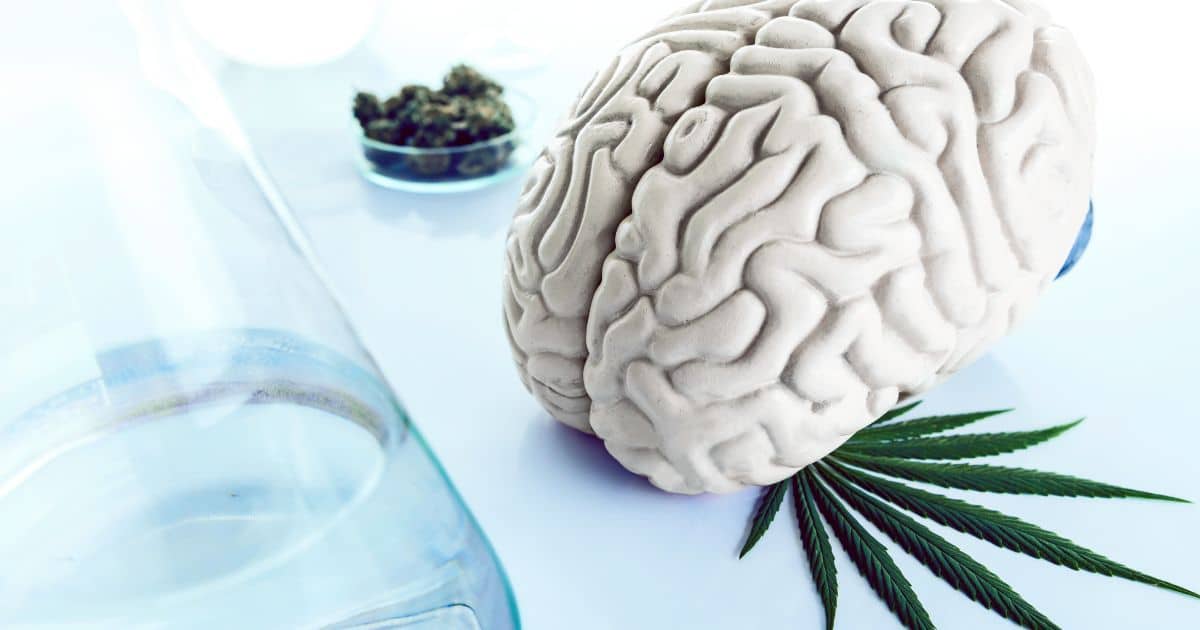Imagine a world where aging brains could regain their youthful vigor, maintaining sharp cognitive abilities well into old age. A study from the University Hospital Bonn and Hebrew University of Jerusalem suggests that cannabis, particularly its active compound tetrahydrocannabinol (THC), may make this a reality—at least for mice.
This discovery opens new doors for anti-aging research and has profound implications for our understanding of brain health, potentially leading to therapies that enhance cognitive function and improve the quality of life for humans as they age.
What is the Study About?
The research from the University Hospital Bonn and Hebrew University of Jerusalem published in ACS Pharmacology & Translational Science focused on the effects of THC on the aging brains of mice. Researchers administered low doses of THC over an extended period and observed significant anti-aging effects. These effects were linked to the modulation of the mTOR protein, a critical player in cell metabolism and cognitive performance.
mTOR (Mechanistic Target of Rapamycin) is a protein that acts as a central hub for cell growth and metabolism. It’s particularly sensitive to energy levels within cells and plays a crucial role in aging. When mTOR activity is high, cells grow and metabolize rapidly, which can lead to aging. On the other hand, reducing mTOR activity through diet, exercise, or pharmacological means has been shown to extend lifespan and improve health.
However, mTOR’s role in the brain is more complex. While reducing mTOR activity can slow aging in peripheral tissues, it may possibly impair cognitive functions by limiting the formation of new synapses. This study addresses this paradox by showing how THC can modulate mTOR activity to enhance cognitive function and slow aging simultaneously.
Key Findings of the THC Study
One of the most compelling findings was that THC improved cognitive performance in older mice. The researchers found that THC increased mTOR activity in the brain, boosting energy production and enhancing the synthesis of synaptic proteins. This led to an increase in synapse density, which the authors of the study said was crucial for learning and memory.
Interestingly, the study also found that THC had different effects on different tissues. In the brain, THC increased mTOR activity, while in adipose tissue (fat) and blood plasma, it decreased mTOR activity. This dual effect is similar to the effects of a low-calorie diet or intense physical activity, both known for their anti-aging benefits. This suggests that THC can provide cognitive benefits while also offering the general anti-aging effects associated with reduced mTOR activity.
The study provides insights into how THC achieves these effects. By modulating mTOR activity and altering the metabolome (the overall composition of small molecules in the body), THC triggers a series of biochemical changes that enhance cognitive function in the brain and slow aging in peripheral tissues.
“We concluded that long-term THC treatment initially has a cognition-enhancing effect by increasing energy and synaptic protein production in the brain, followed by an anti-aging effect by decreasing mTOR activity and metabolic processes in the periphery,” says Dr. Andras Bilkei-Gorzo from the Institute of Molecular Psychiatry at the UKB, who is also a researcher at the University of Bonn. “Our study suggests that a dual effect on mTOR activity and the metabolome could be the basis for an effective anti-aging and cognition-enhancing drug.”
Implications for Anti-Aging and Cognitive Health
While these findings are significant, it’s essential to note that researchers observed them in mice. Further research is needed to determine whether THC can produce similar effects in humans. However, the study lays a strong foundation for exploring THC as a potential treatment for cognitive decline and other age-related conditions.
This study adds to a growing body of evidence suggesting that cannabinoids could play a significant role in anti-aging research. The dual effects of THC on mTOR activity and the metabolome provide a promising avenue for developing new treatments that enhance cognitive function while also offering broader anti-aging benefits.
The discovery that THC can reverse aging processes in the brain of mice is a significant milestone in anti-aging research. By modulating mTOR activity and altering the metabolome, THC offers a unique dual effect that enhances cognitive function while also providing broader anti-aging benefits. While researchers need to conduct further studies to translate these findings to humans, this study opens new avenues for developing treatments that could help maintain cognitive health into old age.





















